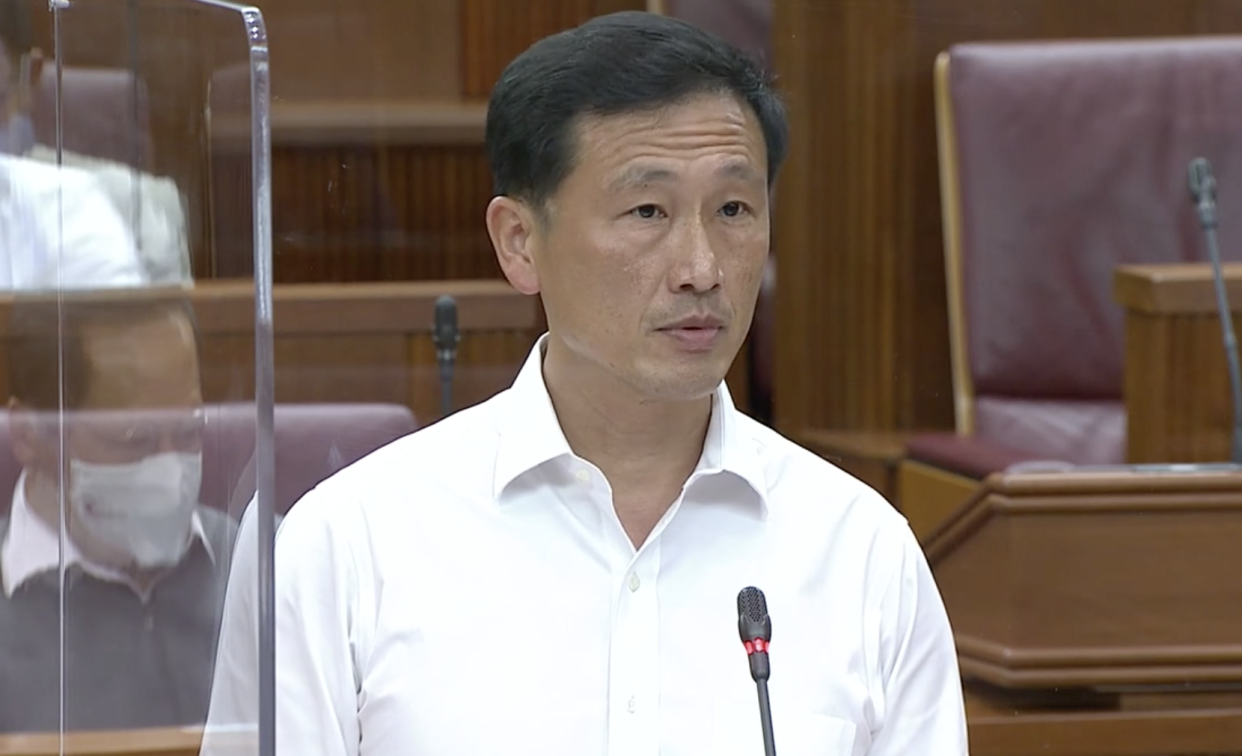Low COVID-19 risk from overseas travellers due to unilateral lifting of border curbs: Ong Ye Kung

SINGAPORE — The risk of inbound travellers from places with sound health surveillance systems being infected with COVID-19 and where incidence rates are similar to Singapore’s is low, said Transport Minister Ong Ye Kung on Tuesday (6 October).
The level of risk is “no higher than that of a Singapore resident coming from Jurong or Sembawang”, Ong added.
Nonetheless, these travellers will be subjected to a COVID-19 test as a precaution, said Ong in his 30-minute ministerial statement in Parliament, where he outlined steps taken by Singapore to open its borders.
“In this way, we can safely lift our border restrictions for these countries and regions, and welcome their travellers. Their governments will decide if and when to reciprocate for travellers from Singapore. Once they do that, aviation links between us would have been restored,” he added.
“There is no need for lengthy bilateral negotiations.”
So far, Singapore has lifted border restrictions on travellers arriving from Brunei, New Zealand, Australia – excluding Victoria – and Vietnam.
Ong said that big numbers of travellers are not expected from these countries “in the short term” because they currently discourage or restrict travel for their residents.
Despite that, such unilateral opening is “still meaningful” as it signifies “a standing invitation”, he pointed out.
“Although the other countries are not ready to lift their restrictions now, Singapore can be top of mind when they are ready eventually,” Ong said.
Using the UK – which unilaterally allows Singaporeans to travel there, without quarantine – as an example, Ong said that once its infection rate falls and becomes comparable to Singapore’s, travel restrictions will be lifted “quickly”.
“Remember we are small. Our domestic market is not a big bargaining chip. Instead, what we need to have, is a mindset of generosity, required of a hub,” he said.
Reciprocal Green Lanes, Air Travel Bubbles
Ong also said that the government will continue to pursue Reciprocal Green Lane arrangements with partner countries or regions, which facilitates essential business and official travellers.
Thus far, the Ministry of Foreign Affairs, which is leading the inter-agency effort, has concluded such arrangements with Brunei, China, Japan, Malaysia, and South Korea.
Similarly, authorities are also negotiating Air Travel Bubbles – for general travellers – with safe countries or regions.
“Hong Kong has publicly announced its intention to establish Air Travel Bubbles with several countries, including Singapore, and we have responded positively. We hope to commence discussions with Hong Kong and other partners soon,” said Ong.
He also noted that transfers will continue to be facilitated at Changi Airport, which makes up about a quarter of Singapore’s passenger volume at the airport.
Since June, about 27,000 passengers transferred through Singapore. On a weekly basis, Changi currently serves about 2,500 transfer passengers, the numbers are expected to “rise steadily”,” said Ong.
Robust safeguards have been put in place and no Singaporean has become ill as a result of these transfers, he added.
Dedicated COVID lab to be set up at Changi Airport
Authorities are also studying different ways to facilitate travellers while managing the risk of virus transmission, said Ong.
In particular, he added, authorities recognise that the requirement of having to serve a full 14-day stay-home notice in a hotel will deter most travellers from wanting to come here.
These visits will need to be facilitated without such an “onerous restriction”, Ong noted, for instance, replacing it with new requirements, such as a more stringent and repeated testing protocol, segregation from the rest of the community, and close tracking of the travellers’ movements while they are here.
Notably, with high-sensitivity tests, the virus can be filtered out at the border, significantly mitigating the risk of it being imported and spreading in Singapore.
In the next few months, a dedicated COVID-19 testing laboratory would be set up at Changi Airport. Testing is, therefore, “the key” to unlocking air travel, Ong said.
“This will benefit not just business travellers important to our economy, but a range of people who need to come to Singapore for various purposes, such as for compassionate reasons or to reunite with a long-separated partner,” he added.
Aviation remains “key to our economic survival” even today, Ong stressed.
“We must open up slowly, carefully, and holding each other accountable for our collective safety. But open up we must,” he said.
Stay in the know on-the-go: Join Yahoo Singapore's Telegram channel at http://t.me/YahooSingapore
Other Singapore stories:
Changi Airport now world's 58th busiest, serving 1.5% of usual passenger volume: Ong Ye Kung
Lee Hsien Loong set to testify in defamation suit against Leong Sze Hian at High Court
Antibodies used to treat Trump developed from blood samples from Singapore patients: report
Teacher accused of embezzling student monies said she didn't keep record of funds



